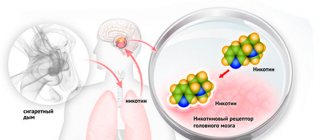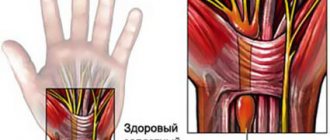Bulimia nervosa is a painful condition characterized by bouts of excessive eating followed by attempts to reduce body weight through extreme measures. The excess of overeating can last up to 2 hours, and the total weight of what was eaten can reach 2.5 kg. The disease is a mental pathology and requires the participation of psychiatrists. The Moscow clinic "Leto" is engaged in the treatment of such disorders using drug therapy and psychotherapeutic methods.
Two main types of bulimia and their characteristics
Uncontrollable gluttony is based on psychological disorders. Psychotherapists distinguish two main types of bulimia:
- The first type of bulimia is when a person is alarmed by something and, under the influence of stress and anxiety, chews food as if “eating” his problems, while calming down. Then the process of eating food becomes a habit and the person continues to abuse food for no reason. This type of illness is called bulimia nervosa. Bulimia nervosa is often observed in athletes who are forced to go on strict diets during training periods. And after the end of the competition they eat to their fill.
- The second type of bulimia is typical for girls during puberty. At this stage, adolescents experience sharp fluctuations in weight: either a brutal appetite appears, or it is completely absent. When a feeling of hunger appears, the teenager eats to his heart's content. “Why limit yourself, because losing weight is very easy,” he thinks. But there comes a time when you still want to eat, your fat mass increases, but you have no strength to control your diet.
Basic treatments for bulimia nervosa
The treatment method for bulimia nervosa, like any other type of addiction, is selected taking into account the causes of its occurrence. If the cause of the disease is physiological characteristics, for example, hormonal disorders, consequences of injuries or mental illness, then doctors recommend their direct treatment, which should result in the relief of food addiction. Most often, drug therapy is carried out in this case. If the problem lies in changes of a psychological nature, then treatment is proposed aimed at correcting such disorders.
Important
Experts recommend complex therapy, which includes a combination of psychotherapy, medication and diet therapy.
Psychotherapy
To treat bulimia nervosa, experts recommend family, group, or individual therapy. The treatment plan is selected taking into account the characteristics of the patient’s personality type and his character, and the main goal is to get rid of psychological barriers that provoke a person to constantly “overeat”.
The interaction of the bulimic with family and friends is of great importance in the success of treatment. The doctor conducts consultation meetings that will help them develop the correct tactics of communication with the patient, aimed at eliminating pathologies of thinking in the patient. Among other things, relatives will be able to provide invaluable assistance in monitoring the food consumed by the patient.
When a person is at the stage of recovery, in order to consolidate the result, he is recommended to attend group therapy sessions. In such classes, patients with bulimia share with each other their experiences in dealing with the disease. Communication with other patients helps to soberly assess your achievements and finally realize your options for getting out of the current situation.
Drug treatment
Many people suffering from bulimia nervosa make the huge mistake of thinking that the problem can be dealt with by taking various diet pills or laxatives. Such drugs do not help overcome the addiction itself. At best, they will help prevent the situation from leading to artificial induction of vomiting; at worst, they will cause irreparable harm to the body.
Doctors prohibit self-medication, rightly fearing the development of irreversible pathologies. Taking medications is possible only after a medical examination and consultation with a doctor. Most often, doctors prescribe potassium and magnesium supplements, multivitamin complexes and supplements, antidepressants and other drugs that complement the effectiveness of psychotherapy.
Diet therapy
Proper nutrition and daily menu planning play a big role in the fight against bulimia nervosa. When selecting an individual plan, the characteristics of the patient’s personality type and health status are strictly taken into account. The doctor’s task in this case is to convey to the patient the simple truth that food is not only a way to get pleasure, but also a source of vital energy that cannot be treated irresponsibly.
Important
It is necessary to provide the body with useful substances and vitamins. The correct nutritional plan should be aimed at providing the body with the level of energy it needs, taking into account the peculiarities of its rhythm of life.
The causes of bulimia can be:
- Diseases of the body (brain tumors, diabetes, genetic diseases associated with impaired brain function, etc.);
- Mental states , negative feelings, negative emotions (lack of meaning in life, inability to solve one’s problems, lack of love, low self-esteem, loss of a loved one, dislike in childhood, etc.);
- Social attitudes . When all the media suggest that you have to be thin, constantly lose weight, young girls and women, following this stereotype, almost constantly “diet” and then overeat. As obesity researchers have noted, the higher the requirements for female slimness, the higher the incidence of diseases associated with malnutrition.
Features of the disease
The deviation in folk medicine is called wolf hunger. Another name used in psychiatry is kinorexia. Most often women between the ages of 15 and 40 suffer from bulimia due to nervousness. From 10% to 15% of females suffer from this disorder to varying degrees of severity. There are much fewer men with this pathology.
Patients are constantly worried about thoughts about proper nutrition, diets, and exercise to help them lose weight. Persons with this disorder do not consider themselves sick, so they rarely seek help at the beginning of the development of the disorder.
Most often, individuals who are involved in:
- Acting work.
- Dancing.
- Athletics.
- Participation in fashion shows.
Wolf hunger is often combined with sexual deviations, addiction to psychoactive substances, and depressive states.
Feelings of hunger may occur:
- in the form of attacks , when hunger is not systemic;
- throughout the day, when you want to eat without stopping. In this case, the bulimic eats almost constantly, eating huge amounts of food;
- at night , when increased appetite is observed only at night, and does not manifest itself during the day.
How the process works
The content of the article
Information about insufficient glucose levels reaches the brain, which controls the release of neuropeptides responsible for the need for food and metabolic rate.
Hormones of the intestinal tract play an important role in regulating appetite. They are released through the walls of the small intestine.
For example:
- cholecystokinin gives a feeling of satiety;
- insulin produced in the pancreas is responsible for the metabolism of glucose and also stimulates the secretion of leptin by adipose tissue, which suppresses excess cravings for food;
- during fasting, the concentration of gremlin increases;
- Serotonin and dopamine, the so-called happiness hormones, produced in the brain suppress the desire to snack, especially sweets.
Problems begin when metabolic processes begin to be disrupted.
Patients with bulimia can be recognized by the following signs:
- wounds on the fingers that occur when the gag reflex is triggered;
- fatigue , weakness, weight loss, although appetite is always present;
- dental diseases . Upon contact with stomach acid, tooth enamel is destroyed;
- joint pain arising from potassium deficiency;
- urgently visiting the toilet after eating to empty the stomach of eaten food;
- constant irritation in the throat;
- swelling of the parotid gland.
Symptoms of bulimia in girls
The disease develops when a girl feels severe pangs of hunger, usually occurring suddenly, followed by uncontrolled absorption of food without paying attention to the consequences of overeating.
Because of this, excess fatness appears and the desire to get rid of it. This is achieved in a variety of ways - from taking laxatives and diuretics, “weight loss” pills of dubious quality, to vomiting, which is self-induced after each such overeating, and subsequently after any meal.
Typically, the patient feels weakness, pain in the epigastric region, and possibly swelling of the glands on the face, which makes the cheeks appear fuller than usual. There may be problems with teeth, sore throat, traces of hemorrhages on the face, heartburn and belching.
This eating disorder may have differences and characterizes various signs of bulimia in girls:
- The attack occurs suddenly, the patient immediately absorbs a huge amount of food/
- The patient chews constantly.
- The attack begins in the late afternoon or in the middle of the night.
The consequences of heavy overeating and forced actions to empty the stomach are not only its stretched walls, when more and more food is required to create a feeling of fullness, but also more serious health problems. Along with neurasthenia and pathological feelings of guilt, hand in hand goes a loss of interest in life, a breakdown in relationships with others, and depression. Alcohol, drug or drug addiction often occurs.
As a result of such measures, heart failure may occur, which is a direct consequence of impaired water and salt metabolism. Due to lack of nutrients, blood pressure drops, which can cause fainting. Possible arrhythmia, renal failure; Hormonal imbalances can cause disruption of the menstrual cycle or complete cessation of menstruation. Signs of bulimia in women during pregnancy can lead to a possible miscarriage or stillbirth.
The peculiarity of this disease is that it cannot be immediately recognized if your loved ones have it. Typically, patients carefully hide their condition so that it does not cause contempt from others. But, if you notice too much appetite and huge portions, after which a person retires to the toilet for a long time, this may be a sign of bulimia.
Especially if this happens often, several times a day. Although often in public such patients can behave like healthy people, eating in moderation, and begin to overeat when no one sees them.
Consequences of bulimia
If the disease is detected at an early stage and treatment begins immediately, there are virtually no negative health consequences. However, prolonged progression of the disease can even lead to death.
When constantly inducing vomiting, a person lacks nutrients, the body becomes dehydrated and weakens. The heart muscle also weakens, the functioning of the gastrointestinal tract is disrupted, and hormonal imbalance occurs. In advanced cases, seizures and heart attacks occur.
Consultations
Psychiatrist consultation
Consultation with a psychotherapist
Psychologist in Nizhny Novgorod
What causes bulimic neurosis
Bulimic neurosis or bulimia neurosis is an eating disorder characterized by excessive overeating and subsequent compensatory reactions. The reason for this behavior is a serious disturbance in the functioning of the central nervous system, as well as the presence of mental disorders.
To date, the pathogenesis of this disease has been poorly studied, but factors contributing to the development of bulimia have been identified:
- pathological disruptions in the functioning of the central nervous system;
- abnormalities in the functioning of the thyroid gland (hormonal imbalance);
- psychical deviations;
- genetic predisposition.
In addition, there are external factors that can, to one degree or another, influence the course of the disease.
These factors include:
- alcohol addiction;
- severe stress;
- depression;
- chronic stress or overwork;
- severe exhaustion of the body.
The main prerequisite for the development of bulimic neurosis is psychological trauma in adolescence.
If a child is criticized for his appearance or is given little attention, he may begin to “stress eat.” This leads to serious mental disorders.
Constructive eating habits
It is worth accustoming yourself to eat slowly, with concentration, enjoying every bite.
- At work, do not eat at your office desk.
- At home, turn off the TV.
Then the brain is not distracted and receives information about satiety as quickly as possible.
Don't forget about breakfast!
This is the main food that increases glucose levels after a night's rest. Skipping breakfast causes you to feel hungry throughout the day.
Your breakfast diet should contain as little simple carbohydrates as possible, especially sweets and refined grain products, such as white bread. They cause a sharp increase in blood glucose concentration, then a rapid decrease.










